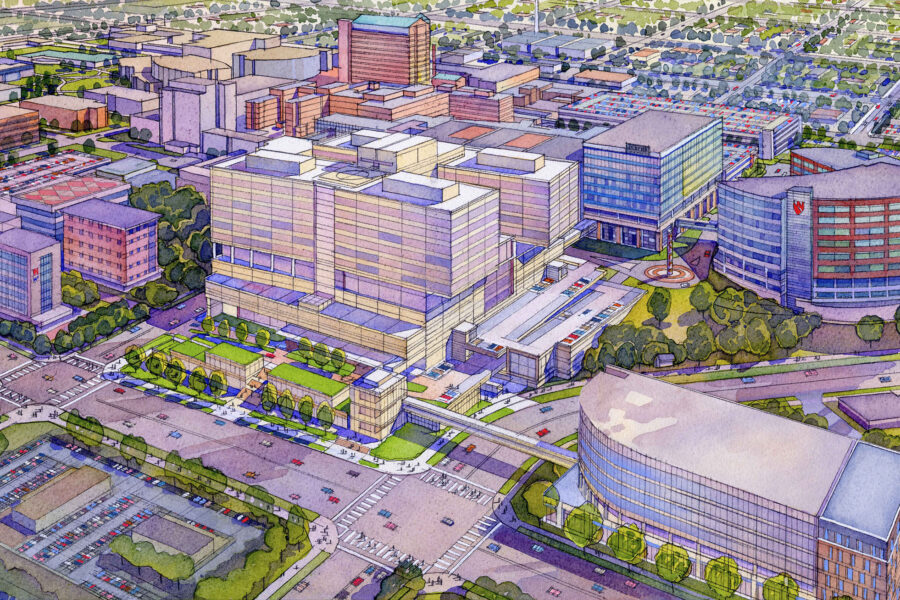The University of Nebraska Board of Regents on Friday (April 19) approved next steps for UNMC’s Project Health proposal, which allows the med center to improve its capacity to address the health care needs of Nebraska.
Project Health, also known as Phase 1 of Project NExT, will provide needed campus enhancements to research, education, clinical and community service missions of UNMC and Nebraska Medicine. The enhancements build capacity in new facilities, as well as build the state’s health workforce through class size and residency expansion.
The regents approved the following:
- An amendment to the project’s existing Interlocal Cooperation Agreement with the City of Omaha. Through the amendment, the City of Omaha will commit funds toward the design and construction of Project Health. The amendment establishes a new 10-year payment term. In addition, the city will commit to a $20 million investment into relevant public improvements such as streets, sidewalks, curbs and sewers. The campus expansion plan also contemplates development of a $30 million public parking facility at the sole expense of the City of Omaha, as well.
- Planning phase funding – upwards of $9 million from philanthropic funds – to support campus consultants and staff to develop a program statement, which then requires board approval.
In connection with the Saddle Creek redevelopment project, the regents approved the ground lease for development of a parking garage within the Saddle Creek Road footprint.
“These are all important steps in the progress of Project Health,” UNMC Chancellor Jeffrey P. Gold, MD, said. “We are very grateful to the Board of Regents and the City of Omaha for facilitating these steps forward.”
The regents on Friday also approved the transition of a handful of programs within UNMC Graduate Studies. Two programs, the Certificate Program in Community Oriented Primary Care and the Bachelor of Science in Medicine, were discontinued, as they have not admitted students in years. Several PhD programs, formerly individual departmental programs, have transitioned to the umbrella Interdisciplinary Graduate Program in Biomedical Sciences (IGPBS).
“Not a single student will be impacted,” said Dele Davies, MD, senior vice chancellor for academic affairs and dean of graduate studies. This is because all students in these programs have been taught out, he said.
PhD studies in areas including biochemistry, molecular biology, cancer biology, physiology, genetics, cell biology, neuroscience, microbiology and immunology are now part of the IGPBS program, and the newly streamlined structure already has produced benefits. As noted by Dr. Davies, “the changes have boosted applications threefold, facilitated our ability to recruit high quality graduate students and reduce attrition from those enrolled in the new interdisciplinary program.”
